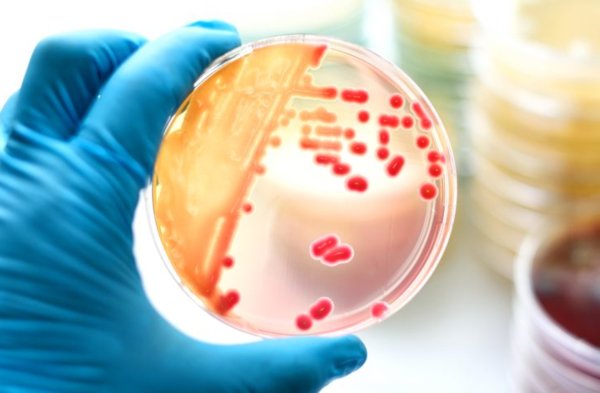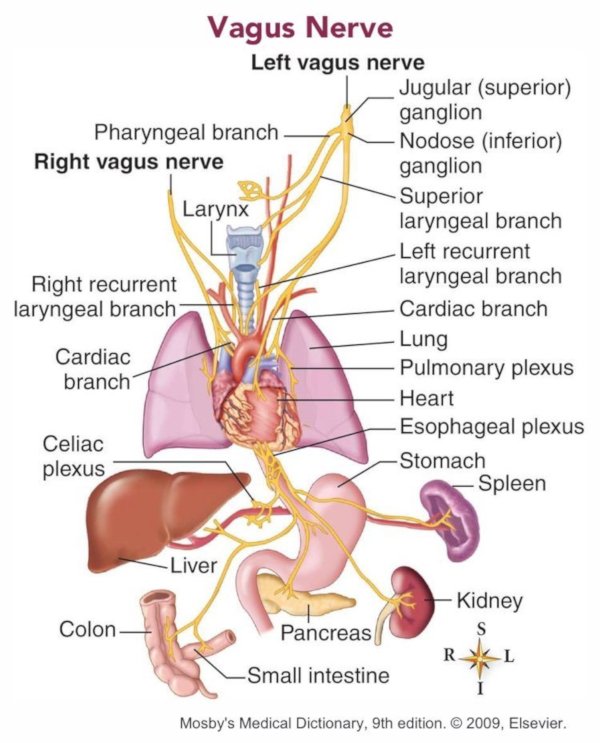
If we were writing just a few years ago, this would all have been dismissed as pseudoscience. But today, it is becoming increasingly obvious that there is a strong link between the gastrointestinal tract and the brain.
Researchers are now convinced that bidirectional signalling takes place between the gut and the brain. We are seeing a growing body of evidence that the brain and the gut are, in a way, dependent on one another. Each has an immediate and profound impact on the performance of the other.
This relationship is often called the ‘Gut-Brain Axis’, or the ‘Mind-Gut Connection’.
Although we are only just beginning to understand the ways in which the gastrointestinal tract and the brain are connected, it is already becoming a hot topic of conversation online.
Bloggers, vlogger and health experts have been churning out content on the gut-mind axis like there’s no tomorrow. If you look on YouTube, for example, you’ll find dozens of videos explaining how your gut microbiome influences your cognition, causes depression, and prevents you from sleeping.
But you’ll also find plenty of skeptics. After all, there seems to be a new health fad every 2 years. Is the obsession with the gut microbiome just the next diet fashion?
Is there really a strong connection between the gut and the brain?
How does the gut microbiome influence cognition?
What does that mean for you?
Can you manipulate your gut bacteria to enhance cognition?
In the following article, we’re going to explain what the gut-brain axis is, how it affects cognition, and how it can be manipulated to your benefit. We’ll also recommend some dietary changes that you might want to make to enhance mental performance, as well as some supplements that might benefit you if you really need to give your gut microbiome a boost!
If you have any questions, or if you want to share your opinions on this topic, please don’t hesitate to post in the comments section at the end.
Can Your Gut Communicate With Your Brain?
Before we get into any discussions of how you might alter your gut microbiome to enhance mental performance, or in what ways it can even make a difference, we first need to establish whether there is a connection at all!
Obviously, we believe that there is a definite link between the gut and the brain.
But lots of people find the concept very counter-intuitive. They’ve probably never thought for a second that their gut bacteria could be influencing their mental energy levels, their ability to focus, or their mood.
For most people, the gut is the gut and the brain is the brain. That’s that.
Well, they’re wrong. What we now know about the gut microbiota makes this assumption completely untenable.
Let’s look at the data that convinced us of the importance of the gut-brain axis.
First of all, we should establish that your gut bacteria can physically communicate with the brain.

Few people know that we actually have a huge concentration of neurons embedded in the lining of the gastrointestinal tract. The enteric nervous system (ENS) is composed of over 500 million neurons. That is only about 0.5% of the neurons in the human brain, but it is 100% larger than the number of neurons found in the spinal cord, and it is 66% of the number of neurons in a cat’s entire nervous system (brain included). It begins in the oesophagus and ends…right at the end!
It is mainly responsible for reporting on conditions within the gut; chemical composition, physical state, etc. The motor neurons in the ENS control peristalsis, which is where the gut contracts and expands to move contents down the tract.
The ENS operates independently of the brain and spinal cord. It is a sub-division of the autonomic nervous system, which is responsible for keeping all of your internal organs running smoothly without you having to think about them.
However, the ENS can and does communicate with the central nervous system (CNS) via the vagus nerve and the prevertebral ganglia.
The Gut-Mind Connection – How Your Gut Microbiome Controls Your Brain
02/10/2018 by Luke Mercia 2 Comments
Gut-Brain Axis
The Gut-Brain Axis
A Look At How Your Gut Microbiome Affects Cognitive Function
If we were writing just a few years ago, this would all have been dismissed as pseudoscience. But today, it is becoming increasingly obvious that there is a strong link between the gastrointestinal tract and the brain.
Researchers are now convinced that bidirectional signalling takes place between the gut and the brain. We are seeing a growing body of evidence that the brain and the gut are, in a way, dependent on one another. Each has an immediate and profound impact on the performance of the other.
This relationship is often called the ‘Gut-Brain Axis’, or the ‘Mind-Gut Connection’.
Although we are only just beginning to understand the ways in which the gastrointestinal tract and the brain are connected, it is already becoming a hot topic of conversation online.
Bloggers, vlogger and health experts have been churning out content on the gut-mind axis like there’s no tomorrow. If you look on YouTube, for example, you’ll find dozens of videos explaining how your gut microbiome influences your cognition, causes depression, and prevents you from sleeping.
But you’ll also find plenty of skeptics. After all, there seems to be a new health fad every 2 years. Is the obsession with the gut microbiome just the next diet fashion?
Gut bacteria affects cognition
Is there really a strong connection between the gut and the brain?
How does the gut microbiome influence cognition?
What does that mean for you?
Can you manipulate your gut bacteria to enhance cognition?
In the following article, we’re going to explain what the gut-brain axis is, how it affects cognition, and how it can be manipulated to your benefit. We’ll also recommend some dietary changes that you might want to make to enhance mental performance, as well as some supplements that might benefit you if you really need to give your gut microbiome a boost!
If you have any questions, or if you want to share your opinions on this topic, please don’t hesitate to post in the comments section at the end.
Can Your Gut Communicate With Your Brain?
Before we get into any discussions of how you might alter your gut microbiome to enhance mental performance, or in what ways it can even make a difference, we first need to establish whether there is a connection at all!
Obviously, we believe that there is a definite link between the gut and the brain.
But lots of people find the concept very counter-intuitive. They’ve probably never thought for a second that their gut bacteria could be influencing their mental energy levels, their ability to focus, or their mood.
For most people, the gut is the gut and the brain is the brain. That’s that.
Well, they’re wrong. What we now know about the gut microbiota makes this assumption completely untenable.
Let’s look at the data that convinced us of the importance of the gut-brain axis.
The gut-mind connection
First of all, we should establish that your gut bacteria can physically communicate with the brain.
Few people know that we actually have a huge concentration of neurons embedded in the lining of the gastrointestinal tract. The enteric nervous system (ENS) is composed of over 500 million neurons. That is only about 0.5% of the neurons in the human brain, but it is 100% larger than the number of neurons found in the spinal cord, and it is 66% of the number of neurons in a cat’s entire nervous system (brain included). It begins in the oesophagus and ends…right at the end!
It is mainly responsible for reporting on conditions within the gut; chemical composition, physical state, etc. The motor neurons in the ENS control peristalsis, which is where the gut contracts and expands to move contents down the tract.
The ENS operates independently of the brain and spinal cord. It is a sub-division of the autonomic nervous system, which is responsible for keeping all of your internal organs running smoothly without you having to think about them.
However, the ENS can and does communicate with the central nervous system (CNS) via the vagus nerve and the prevertebral ganglia.
Vagus nerve diagram
The ENS will continue to function if these channels are severed, but while they are open, the ENS and CNS can and do communicate.
The ENS uses over 20 neurotransmitters. In fact, some of the best-known neurotransmitters are concentrated in the gut rather than the brain. More than 90% of the body’s serotonin is found in the gut, as well as sizable quantities of dopamine, acetylcholine, and others.
It shouldn’t come as a big surprise to learn that the ENS is sometimes referred to as a “second brain”. Although it has a tiny fraction of the neurons in the human brain, it is as complex as the entire nervous systems of some mammals.
With that information in mind, it is a lot easier to grasp the idea that the brain and the gut are in constant communication, and that one affects the other.
You can read the full post on NaturalNootropic.com.